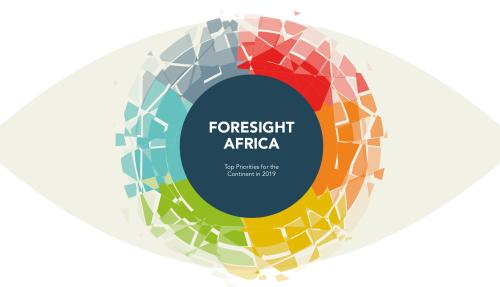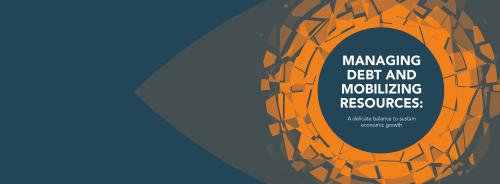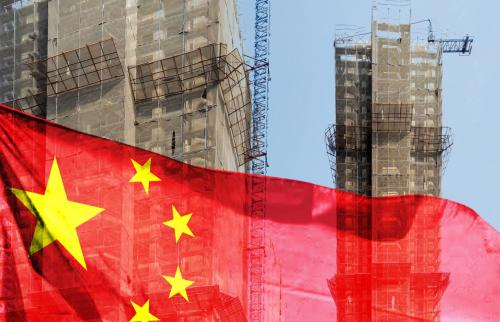Below is a viewpoint from Chapter 2 of the Foresight Africa 2019 report, which explores six overarching themes on the triumphs of the past years as well as strategies to tackle the remaining obstacles for Africa. Read the full chapter on managing debt and mobilizing resources.
With a population and gross domestic product projected at 399 million people and $3.3 trillion by 2050, the gulf between the reality of Africa’s largest economy and its undisputed potential remains wide—but achievable. Indeed, our major task has been to systematically implement strategies that will deliver the future we wish to see. This daunting responsibility has not been lost on the Buhari administration, and serves as the impetus for its sustained “Change” agenda.
The past three and a half years have been challenging both at home and abroad. Commodity prices, both oil and non-oil, have been volatile. Global trends, be it security, trade, or politics, have also been unpredictable. In Nigeria, we have had to cope with disruptions in oil production and exports, security challenges, and devastating floods. We have weathered these storms and made progress on many fronts, which is why we have cause to be optimistic about the future.
This administration has now set the country on the path to stability, growth, and prosperity. This government is doing more to diversify and grow a productive and competitive economy with far fewer resources. Notably, it secured the territorial integrity of the nation by reclaiming territory in the Northeast and has tackled grand corruption, introducing and improving transparency and accountability in the management of public funds.
The economy has recovered from recession and we have had six quarters of growth. Nigeria’s real gross domestic product growth stood at 1.81 percent in the third quarter of 2018 compared to 1.17 percent in the third quarter of 2017.
Foreign exchange reserves grew from $28.57 billion in May 2015 to $42.92 billion by mid-December 2018. This contributed to exchange rate stability and provided a buffer against unanticipated external shocks. Inflation has also declined from a peak of 18.72 percent in January 2017 to 11.28 percent in November 2018. Nigeria has moved from a deficit to a surplus of 681.27 billion Nigerian naira in our trade balance as of the third quarter of 2018, representing a significant improvement from the deficit of 290.1 billion naira in 2016. This reflects an increase in non-oil exports and a reduction in the importation of food and items that can be produced locally.
We also committed to unprecedented investments to start and finish critical infrastructure projects in power, roads, and rail across the country, as well as direct investments in people to lift them up—the largest social investment program in Africa.
By allocating over 3 trillion naira ($8.3 billion) toward reducing our infrastructure deficit over the past three years—the largest capital spending in Nigeria’s history—we have jump-started the construction of power, road, and rail projects, which will be catalytic in connecting people, goods, and opportunities. One example, the Lagos- Kano rail, will help move freight over a more than 1,000-kilometer network of rail from the country’s busiest port in Lagos to the northern city of Kano. For effective delivery of power to critical areas, such as industries and large markets, we have decentralized the power supply by leveraging off-grid solutions, especially solar-based systems, and are enabling the deployment of broadband across the county.
We continue to focus on creating an enabling business environment for our small and medium-sized enterprises to thrive by making Nigeria a progressively easier place to do business, delivering several reforms, as evidenced by our moving up 24 places in the World Bank’s Doing Business report over the past three years. In 2019 and beyond, we are confident that by driving agriculture and agro-based industries, technology and innovation, solid minerals, and our vibrant creative sector, Nigeria will harness the energies of our entrepreneurial youth to deliver the promise of our future.
The Brookings Institution is committed to quality, independence, and impact.
We are supported by a diverse array of funders. In line with our values and policies, each Brookings publication represents the sole views of its author(s).







Commentary
Reviving Nigeria’s economy through economic diversification
January 25, 2019